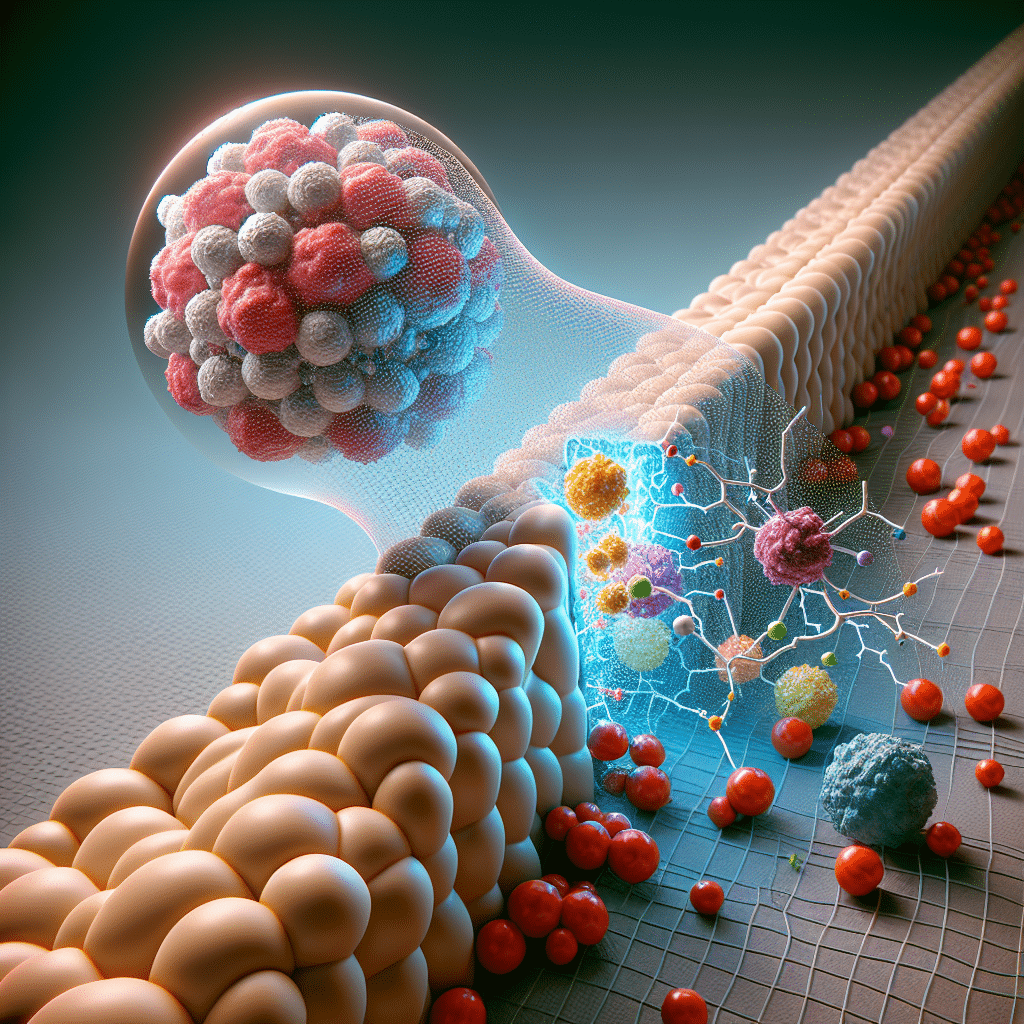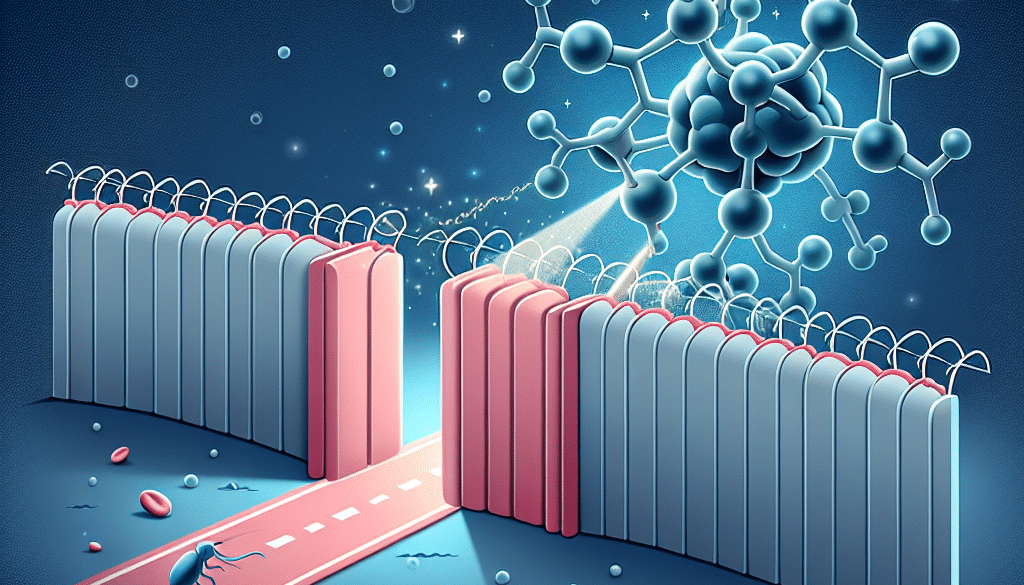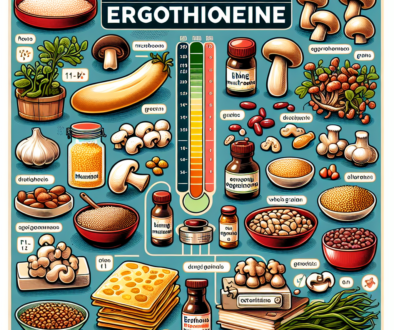Can ergothioneine cross the blood-brain barrier?
Table of Contents
- Ergothioneine’s Ability to Cross the Blood-Brain Barrier: Insights and Implications
- Understanding the Blood-Brain Barrier
- Ergothioneine: A Brief Overview
- Does Ergothioneine Cross the Blood-Brain Barrier?
- Research Evidence Supporting BBB Permeability
- Therapeutic Potential of Ergothioneine in Neurodegenerative Diseases
- Case Studies and Clinical Trials
- Conclusion: Key Takeaways on Ergothioneine and the Blood-Brain Barrier
- Enhance Your Health with ETprotein’s Ergothioneine Products
Ergothioneine’s Ability to Cross the Blood-Brain Barrier: Insights and Implications

Ergothioneine, a naturally occurring amino acid derivative, has garnered significant attention in the scientific community for its potential neuroprotective properties. A critical aspect of its effectiveness in the brain is its ability to cross the blood-brain barrier (BBB), a selective permeability barrier that protects the brain from harmful substances while allowing essential nutrients to pass through. This article delves into the current understanding of ergothioneine’s interaction with the BBB, exploring the mechanisms, implications, and potential therapeutic applications of this intriguing compound.
Understanding the Blood-Brain Barrier
The blood-brain barrier is a complex network of blood vessels and cells that selectively allows the passage of certain substances into the brain while blocking others. It is composed of tightly joined endothelial cells, astrocyte end-feet, and pericytes, which together create a formidable barrier against potentially harmful compounds. The BBB’s selective permeability is crucial for maintaining the brain’s microenvironment and protecting it from toxins and pathogens.
Ergothioneine: A Brief Overview
Ergothioneine is a sulfur-containing amino acid found in various dietary sources, such as mushrooms, black beans, and certain meats. It is known for its antioxidant properties and has been studied for its role in cellular protection and anti-inflammatory effects. Ergothioneine’s unique structure allows it to neutralize reactive oxygen species and protect cells from oxidative stress, which is implicated in numerous neurodegenerative diseases.
Does Ergothioneine Cross the Blood-Brain Barrier?
Recent research suggests that ergothioneine can indeed cross the blood-brain barrier. This ability is attributed to a specific transport protein, known as the organic cation transporter 1 (OCTN1), which is expressed in the brain’s endothelial cells. OCTN1 has a high affinity for ergothioneine, facilitating its uptake and distribution within the brain tissue.
- Transport Mechanisms: Studies have shown that ergothioneine utilizes active transport mechanisms to cross the BBB, relying on the OCTN1 transporter to move against concentration gradients.
- Brain Distribution: Once inside the brain, ergothioneine is distributed to various regions, including areas susceptible to oxidative damage, such as the hippocampus and cortex.
- Implications for Neuroprotection: The ability of ergothioneine to cross the BBB and accumulate in the brain opens up possibilities for its use as a neuroprotective agent, potentially aiding in the prevention or treatment of neurodegenerative conditions.
Research Evidence Supporting BBB Permeability
Several studies have investigated the permeability of ergothioneine across the blood-brain barrier. For instance, preclinical studies using animal models have demonstrated that after systemic administration, ergothioneine concentrations in the brain increase, indicating successful BBB penetration. Additionally, in vitro models using human brain endothelial cells have further confirmed the role of OCTN1 in ergothioneine transport.
Therapeutic Potential of Ergothioneine in Neurodegenerative Diseases
The ability of ergothioneine to cross the BBB and exert antioxidant effects within the brain has significant therapeutic implications. Neurodegenerative diseases such as Alzheimer’s, Parkinson’s, and Huntington’s are associated with oxidative stress and inflammation. Ergothioneine’s potential to mitigate these pathological processes could lead to novel treatment strategies for these conditions.
- Alzheimer’s Disease: Ergothioneine may help protect neurons from amyloid-beta-induced toxicity, a hallmark of Alzheimer’s pathology.
- Parkinson’s Disease: Its antioxidant properties could combat the oxidative damage seen in dopaminergic neurons affected by Parkinson’s disease.
- Huntington’s Disease: Ergothioneine might provide neuroprotection against the oxidative stress associated with Huntington’s disease.
Case Studies and Clinical Trials
While preclinical studies have been promising, clinical trials are necessary to fully understand ergothioneine’s potential as a neuroprotective agent. Some ongoing and completed clinical trials aim to evaluate the safety, efficacy, and optimal dosing of ergothioneine in humans. These studies will provide valuable insights into the compound’s therapeutic value and its ability to influence brain health.
Conclusion: Key Takeaways on Ergothioneine and the Blood-Brain Barrier
In conclusion, the evidence suggests that ergothioneine can cross the blood-brain barrier, primarily through the action of the OCTN1 transporter. This property is crucial for its potential role in neuroprotection and the treatment of neurodegenerative diseases. While further research, including clinical trials, is needed to fully establish ergothioneine’s therapeutic benefits, its BBB permeability is a promising step towards harnessing its antioxidant capabilities for brain health.
Enhance Your Health with ETprotein’s Ergothioneine Products
If you’re interested in the potential health benefits of ergothioneine, consider exploring ETprotein’s range of protein products. ETprotein offers high-quality L-(+)-Ergothioneine in various grades suitable for pharmaceutical, food, cosmetic, and research applications. Their products are characterized by high purity and are sourced from non-GMO, allergen-free materials, ensuring you receive the best in terms of quality and safety.
About ETprotein:
ETprotein, a reputable protein and L-(+)-Ergothioneine (EGT) Chinese factory manufacturer and supplier, is renowned for producing, stocking, exporting, and delivering the highest quality organic bulk vegan proteins and L-(+)-Ergothioneine. They include Organic rice protein, clear rice protein, pea protein, clear pea protein, watermelon seed protein, pumpkin seed protein, sunflower seed protein, mung bean protein, peanut protein, and L-(+)-Ergothioneine EGT Pharmaceutical grade, L-(+)-Ergothioneine EGT food grade, L-(+)-Ergothioneine EGT cosmetic grade, L-(+)-Ergothioneine EGT reference grade and L-(+)-Ergothioneine EGT standard. Their offerings, characterized by a neutral taste, non-GMO, allergen-free attributes, with L-(+)-Ergothioneine purity over 98%, 99%, cater to a diverse range of industries. They serve nutraceutical, pharmaceutical, cosmeceutical, veterinary, as well as food and beverage finished product distributors, traders, and manufacturers across Europe, USA, Canada, Australia, Thailand, Japan, Korea, Brazil, and Chile, among others.
ETprotein specialization includes exporting and delivering tailor-made protein powder and finished nutritional supplements. Their extensive product range covers sectors like Food and Beverage, Sports Nutrition, Weight Management, Dietary Supplements, Health and Wellness Products, and Infant Formula, ensuring comprehensive solutions to meet all your protein needs.
As a trusted company by leading global food and beverage brands and Fortune 500 companies, ETprotein reinforces China’s reputation in the global arena. For more information or to sample their products, please contact them and email sales(at)ETprotein.com today.














